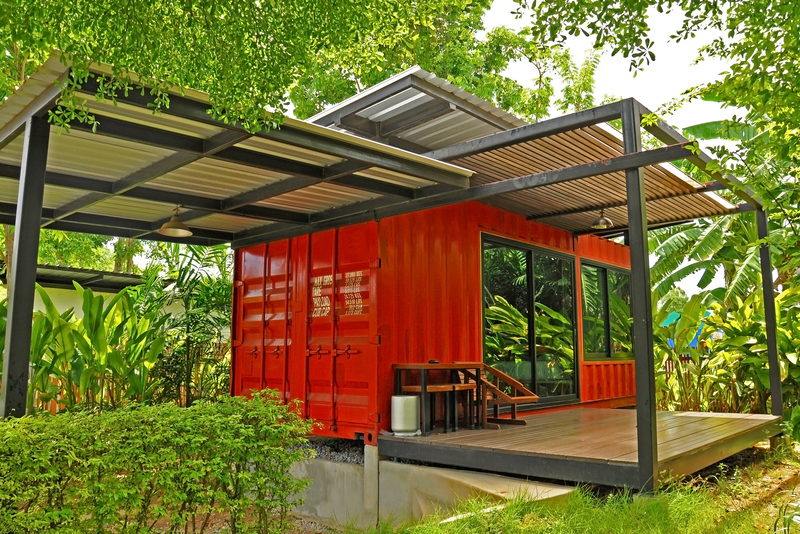Innovative Ways to Improve Home Recycling: Transforming Waste Management
In today's world, home recycling has become a necessity rather than an option. As environmental issues intensify, more and more households are seeking efficient and creative solutions for managing household waste. Implementing innovative ways to improve home recycling can significantly reduce landfill contributions and lower your carbon footprint. In this comprehensive guide, we'll explore actionable and unique strategies to revamp your home's recycling routine, making it more effective--and even enjoyable!

Why Is Home Recycling So Important?
Did you know that over 300 million tons of plastic are produced every year, yet only 9% is recycled globally? Home recycling fosters a sustainable environment by conserving natural resources, reducing pollution, and minimizing excess waste. When done effectively, it can also save you money and energy.
- Reduces landfill waste
- Conserves natural resources
- Lowers greenhouse gas emissions
- Promotes eco-friendly behavior in communities
10 Innovative Ways To Improve Your Home Recycling Efforts
From leveraging technology to embracing creative DIY hacks, there are numerous innovative home recycling strategies you can adopt. Below we delve into some of the most effective approaches.
1. Optimize Recycling Bins for Better Sorting
Proper sorting is the cornerstone of a successful recycling system. Too often, recyclables end up contaminated, rendering entire batches unusable.
- Use color-coded bins for plastics, paper, glass, and metals
- Add clear labeling and infographics for each bin (especially helpful for kids)
- Install compact vertical or stackable bins in smaller spaces
Investing in smart recycling bins equipped with built-in sensors or digital screens can also alert you when a bin is full or if materials are incorrectly sorted.
2. Embrace Home Composting
About 30% of our household waste comes from organic materials like food scraps, coffee grounds, and yard trimmings. Composting is a powerful and innovative way to reduce waste and nourish your garden.
- Set up a simple outdoor compost pile or bin
- Use countertop compost containers for kitchens
- Try vermicomposting (using worms) for even faster decomposition
- Look for electric composters that fit under the sink for tech-savvy households
Not only does composting decrease landfill waste, but it also creates nutrient-rich soil for houseplants or gardens.
3. Use Technology to Track and Reduce Waste
Smart devices and mobile applications have entered the home recycling arena, offering users greater control and insight into their waste management habits.
- Install smart scales that weigh your recycling and landfill bins, giving you instant feedback on your progress
- Apps like iRecycle or Recycle Coach provide guidance on local recycling rules and accepted items
- Use a waste tracker app to monitor individual and family waste habits
Leveraging data can make recycling more engaging and help identify areas for improvement, making your efforts more measurable and impactful.
4. Rethink Packaging and Bulk Purchasing
Much household waste comes from single-use packaging materials. By switching up your shopping habits, you can drastically cut down on what needs to be recycled.
- Buy in bulk to minimize excess packaging
- Choose products with biodegradable or recyclable packaging
- Bring your own reusable bags, jars, and containers for shopping
- Avoid heavily packaged goods and opt for refill stations where available
Supporting brands with sustainable packaging and adopting a zero-waste mindset helps reduce the recycling load in your home.
5. Facilitate Upcycling and Creative Reuse Projects
Upcycling is a trend that transforms discarded items into something new and valuable. It's both fun and environmentally responsible--reducing the need for industrial recycling altogether.
- Convert glass jars into food storage, plant pots, or decorative lights
- Turn cardboard boxes into kids' playhouses or craft organizers
- Repurpose old clothing into cleaning rags or tote bags
- Use plastic bottles for DIY planters or bird feeders
Involve your family or roommates with monthly upcycling challenges to fuel creativity and sustainability at once!
6. Educate Your Household
Often, recycling systems break down due to a simple lack of knowledge. Schools, workplaces, and government initiatives continue to play a vital role, but household education is key.
- Hold family recycling workshops or "green games"
- Use printable guides or infographics on what is and isn't recyclable
- Create fun quizzes or reward systems to boost recycling participation
- Share recycling news or fact sheets on the fridge or family corkboard
Empowering everyone to understand the importance of recycling builds lifelong habits and enhances community impact.
7. Set Up a Home Recycling Center
Creating a dedicated space for collecting, cleaning, and storing recyclables makes participation easier for everyone in your household.
- Designate a corner in the kitchen, garage, or utility room
- Add shelves and clear bins for separating items
- Keep cleaning supplies handy to rinse containers before sorting
- Label collection days on a family wall calendar
A well-organized home recycling center can significantly increase the amount and quality of recyclables that leave your house.
8. Partner with Local Recycling Initiatives
Many neighborhoods offer advanced recycling programs beyond what regular curbside collection accepts.
- Participate in e-waste drives for old electronics and batteries
- Join community composting networks
- Check for special recycling events for textiles, paints, or hazardous waste
- Explore drop-off points for soft plastics or polystyrene foam
Collaborating with local groups ensures a wider array of items are handled correctly and fosters a broader commitment to sustainability.
9. Innovate with Smart Recycling Gadgets
The newest wave of home recycling innovations includes high-tech devices designed for modern living.
- Countertop recycling sorters scan barcodes and sort waste accordingly
- Automatic compactors reduce volume, keeping bins manageable
- Kitchen composters use heat and aeration for rapid decomposition
- IoT-enabled bins that generate collection reminders via smartphone
Investing in smart recycling gadgets not only simplifies routines, but can also increase the accuracy and convenience of your efforts.
10. Challenge Yourself with a "Zero Waste" Week
Going a step further, why not test your household with a zero-waste challenge? Try to produce as little landfill trash as possible.
- Keep a daily waste log
- Identify products with excess packaging to swap in the future
- Rely on reusables and bulk items
- Repurpose anything you can
Even if you don't achieve 100% zero waste, this experience provides valuable insights and inspires long-term lifestyle changes.
Solving Common Home Recycling Problems
Troubleshooting recycling at home often boils down to a few persistent issues. Here's how innovative strategies can help:
- Contamination: Rinse containers before recycling. Use divided bins to separate materials at the source.
- Confusion about what's recyclable: Post a cheat sheet on your recycling station. Use apps that list items accepted locally.
- Overflowing bins: Compact recyclables and schedule regular drop-offs at your closest center.
- Space constraints: Try stackable or under-counter bins, or share a system with neighbors in apartment settings.
By tackling these barriers, you'll boost participation and efficiency in your home recycling system.
Inspiring Your Community for Greater Impact
While improving your own household recycling routine is crucial, broader impact comes from community collaboration. Consider these tips:
- Start or join neighborhood clean-up events
- Advocate for more robust recycling options with your municipality
- Set up a community swap event for unwanted but usable household items
- Share your innovative tips on social media or with local media outlets
When you become an advocate for innovative home recycling, you inspire others to take up the challenge, multiplying your impact.

Looking Forward: The Future of Home Recycling
As technology advances and sustainable living becomes a global focus, expect even more innovative strategies for efficient home recycling. From AI-driven waste sorting robots to biodegradable household products and city-wide digital waste tracking systems, the future holds tremendous promise.
Key Takeaways for Improving Home Recycling
- Embrace technology and smart gadgets for seamless sorting and tracking
- Educate your household and lead by example
- Contribute to community initiatives and local recycling programs
- Reduce waste at the source by rethinking shopping habits and packaging
- Creatively rethink, repurpose, and upcycle whenever possible
Conclusion: A Greener Tomorrow Starts at Home
Adopting innovative ways to improve home recycling isn't just an environmental act--it's a catalyst for greater change. By embracing technology, educating your household, minimizing packaging, and partnering with your community, you transform the way waste is managed. Start small, make gradual changes, and lead by example. Remember, every recycled can, composted peel, or upcycled craft makes a difference. With these advanced home recycling techniques, you'll be well on your way to a cleaner, greener home--and planet.